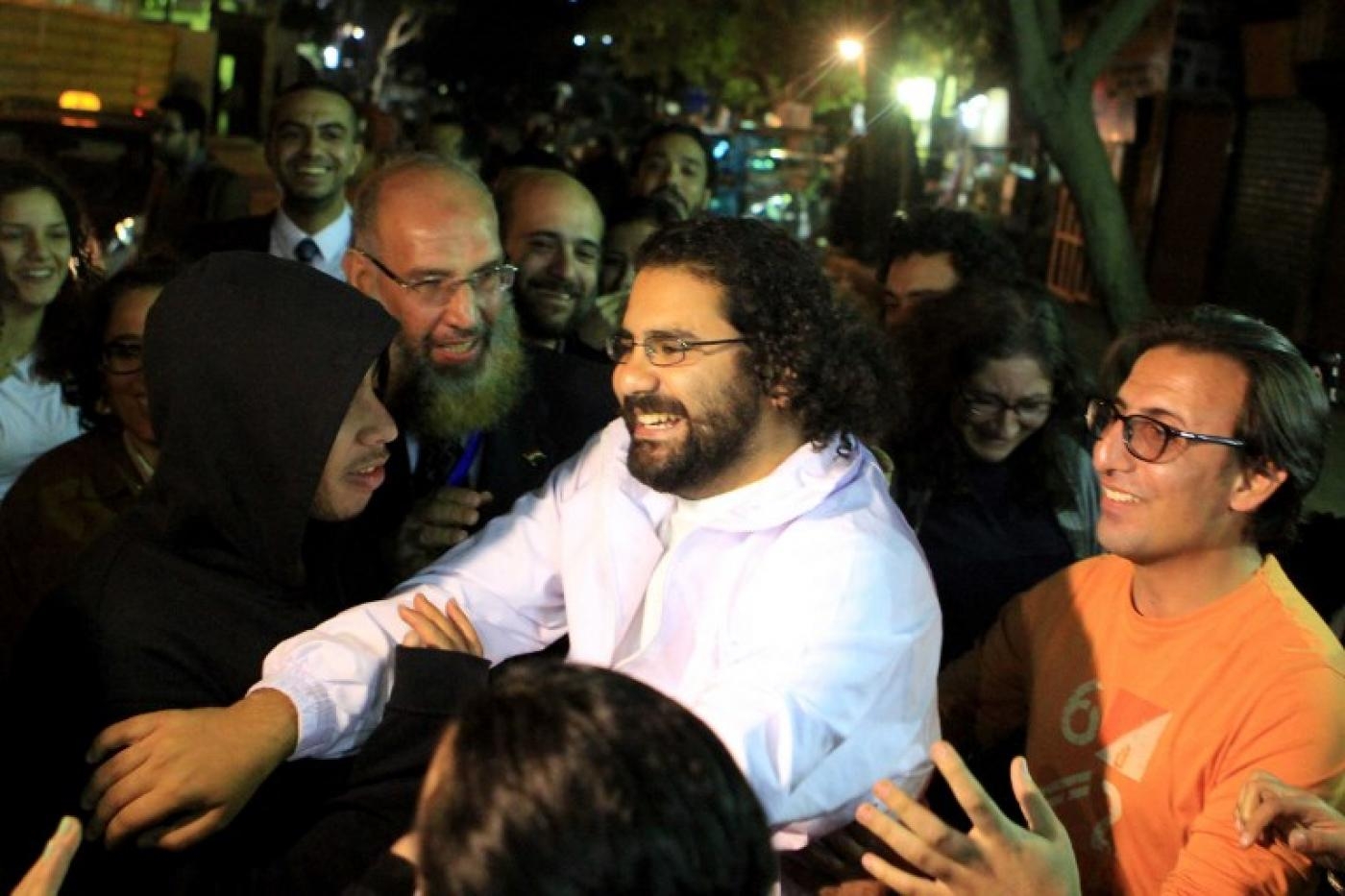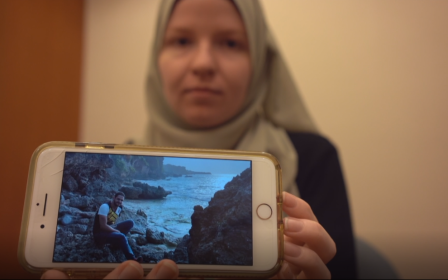Egyptian activist Alaa Abdel Fattah to be released from prison after five years

Political activist Alaa Abdel Fattah is expected to be released from an Egyptian prison on Wednesday after five years behind bars, according to his family.
Abdel Fattah was arrested in November 2013 for protesting without permission in violation of a law that rights groups say effectively bans demonstrations. He was sentenced to five years in prison after a trial that lasted more than a year.
"Today is the last in Alaa's unjust five-year prison sentence," Mona Seif, his sister, tweeted early on Wednesday.
"We are still waiting for his release process to start. We hope it goes smoothly without any unnecessary delays and detours that only serve to put him through even more stressful times."
He has been held in the Tora prison in Cairo where he has reportedly been denied access to books, pens and paper periodically.
New MEE newsletter: Jerusalem Dispatch
Sign up to get the latest insights and analysis on Israel-Palestine, alongside Turkey Unpacked and other MEE newsletters
One of the key leaders of the 2011 uprisings, an outspoken blogger and a coder, Abdel Fattah has consistently been a thorn in the side of Egypt’s political establishment.
"He has been arrested or investigated under every Egyptian head of state in his lifetime," wrote Jillian York, now Director for International Freedom of Expression at the Electronic Frontier Foundation, in a 2014 profile.
In 2006, he spent 45 days in detention for protesting in support of judges calling for the independence of the judiciary under President Hosni Mubarak, before rising to prominence as one of the leaders of the 2011 revolution that ousted Mubarak from power.
He was arrested again in October 2011 in connection with the Maspero protests in Cairo during which army and security forces attacked protesters demonstrating against the demolition of a church in Upper Egypt. Nearly 30 people were killed.
Abdel Fattah was charged with incitement and theft of a military weapon, even though the prosecutor had presented no evidence, according to Human Rights Watch.
While he was detained, Abdel Fattah wrote that he had never expected to be back in prison after Mubarak was ousted. "I never expected to repeat the experience of five years ago: after a revolution that deposed the tyrant, I go back to his jails?" he wrote. He was released after two months of detention.
His case has attracted global attention with supporters calling for his release using the #freealaa hashtag, and the UN Working Group on Arbitrary Detention concluding that he is arbitrarily detained and calling for his immediate release.
Middle East Eye delivers independent and unrivalled coverage and analysis of the Middle East, North Africa and beyond. To learn more about republishing this content and the associated fees, please fill out this form. More about MEE can be found here.




